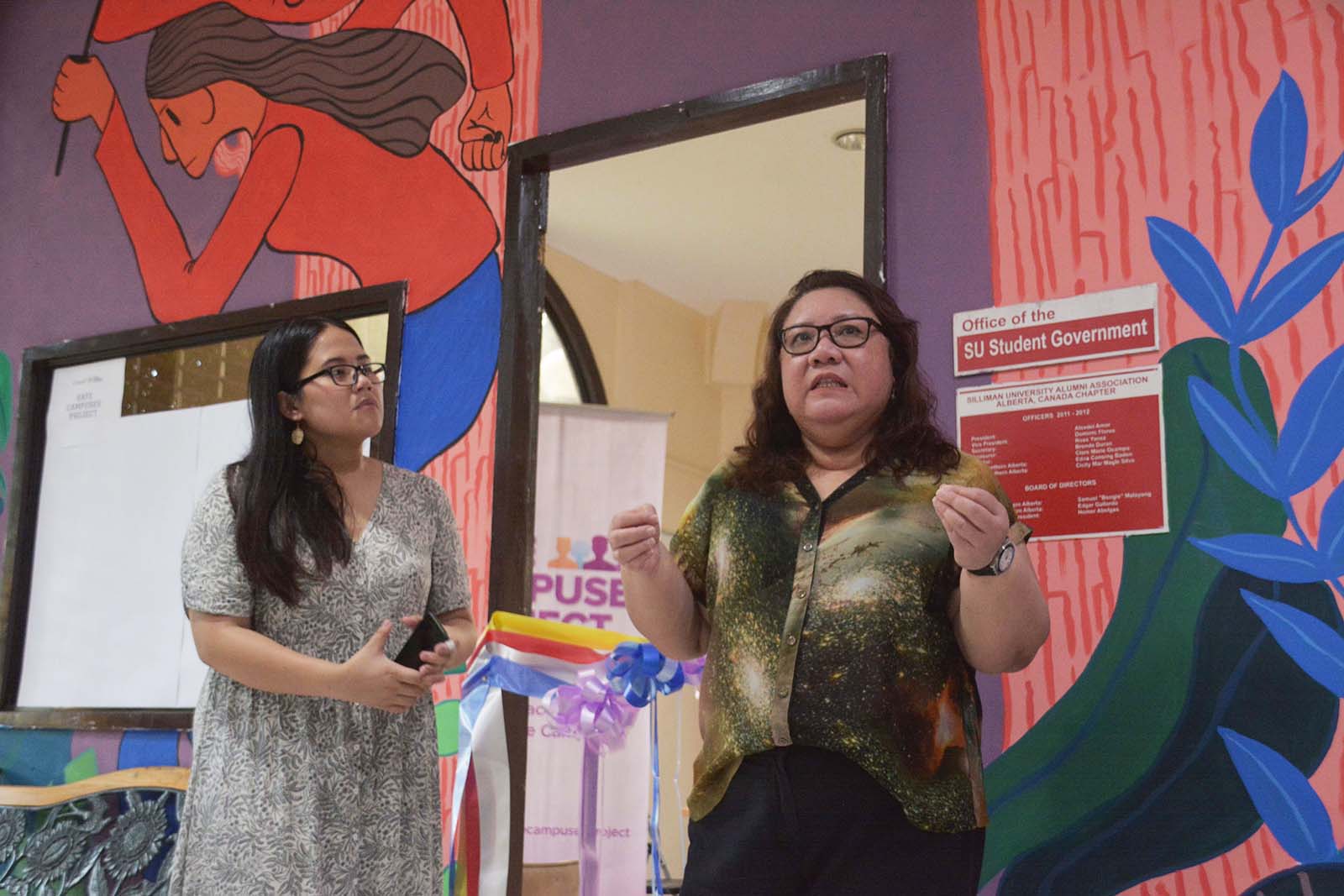
SU launches Safe Campuses Project
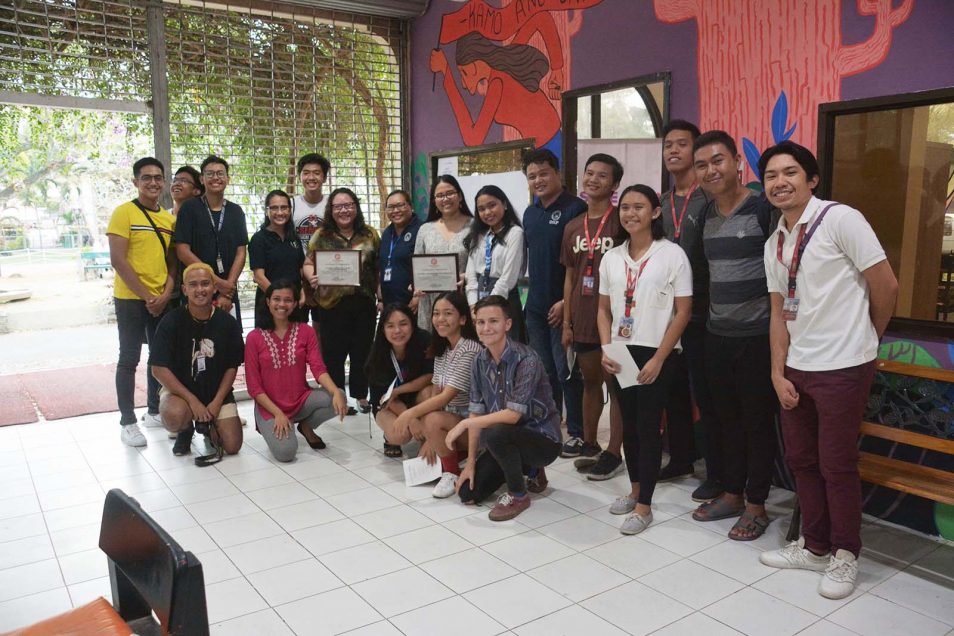
Attendees of the Project launch and ribbon-cutting ceremony of SU’s Safe Space Desk included members of the SU Student Government and Safe Silliman Task Force members.
Silliman University (SU), in partnership with the Canada Fund for Local Initiatives (CFLI) and Active Citizenship Foundation (ACF), recently launched the Safe Campuses Project in SU to fight off harassment and discrimination on campus.
An initiative of ACF and CFLI, the Safe Campuses Project aims to promote safe spaces by establishing Safe Spaces Desks in selected campuses in the Philippines.
SU, one of the five campuses in the Philippines that adopted the said project through its Office of Strategic Partnerships (OSP), inaugurated last January 27, 2020 its Safe Space Desk located at the SU Student Government (SUSG) Office, first floor of Oriental Hall.
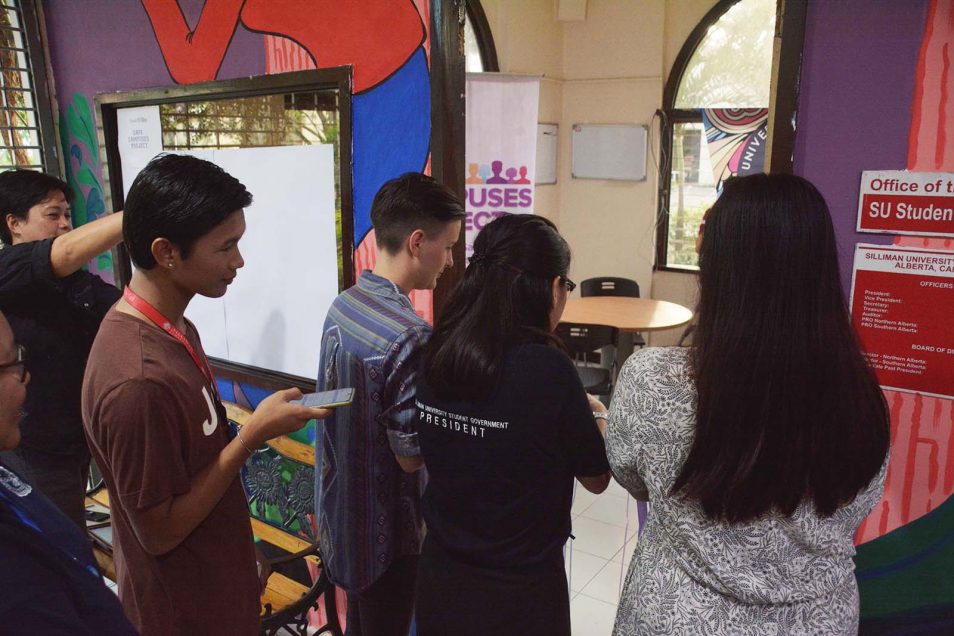
Ceremonial ribbon-cutting of the Safe Space Desk in SU, located at the SU Student Government office, first floor of Oriental Hall.
The Safe Space Desk, a physical space for the Project, is where students can securely disclose experiences and concerns, with the choice of reporting incidents or not.
Reyman Sy, OSP staff and Safe Silliman Task Force head, said the desk will operate under the SUSG on its pilot year so it can first cater to students. The desk, he added, will be staffed by students volunteering as peer mentors in the SU Guidance and Testing Division.
The Safe Silliman Task Force, composed of students, faculty and staff selected by the SU Guidance and Testing Division, leads the implementation of the Safe Campuses Project in the University.
Sy said the Task Force will work with the SUSG to draft a mechanism for the Safe Space Desk and recommendations for the University to adopt in its policies, based on the kinds of concerns and issues that will be received by the Desk.
As for the current university protocol, Sy said all student concerns go through the Office of Student Services, however the Project aims to make the Safe Space Desk an actual office in the University so that it can also cater to faculty and staff.
Dr. Jenny Lind Elmaco, OSP director, said the Safe Space Desk can help the University identify what areas need to be strengthened in terms of policies on addressing students’ concerns.
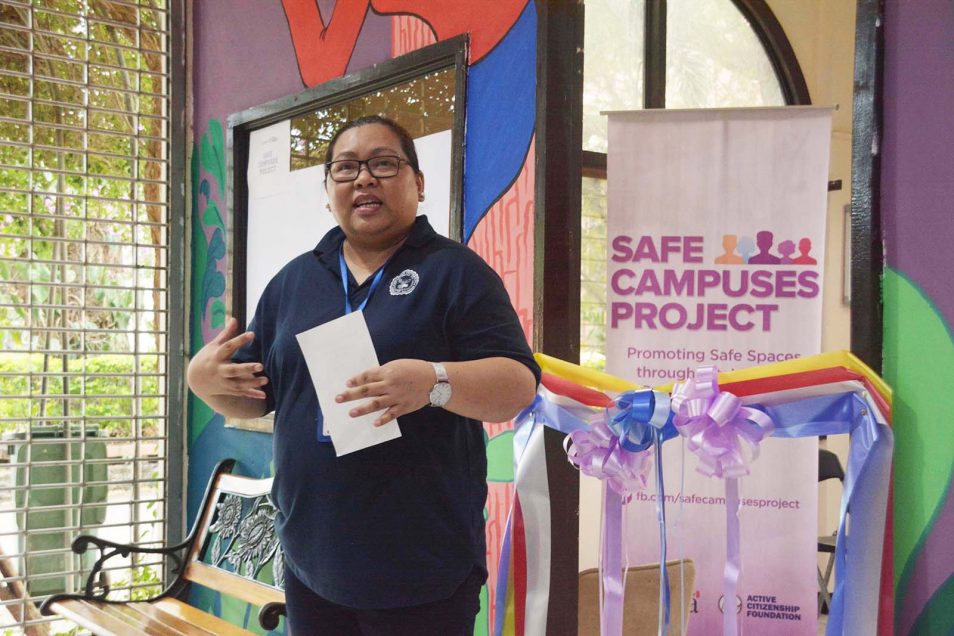
Dr. Jenny Lind Elmaco, director of the Silliman University (SU) Office of Strategic Partnerships, delivers the welcome remarks during the Safe Campuses Project launch last January 27, 2020 at the Oriental Hall.
Aside from the physical desk, a Facebook page for the Safe Campuses Project in SU will also be launched to receive concerns and grievances, which will be treated anonymously.
“A safe space is supposed to be a space where everyone is an expert of their own experiences…[It is] a venue for people to talk about their experiences and a…venue for people to hold other people accountable and hold themselves accountable,” said Shamah Bulangis, Safe Silliman Task Force member.
Bulangis said the term “safe spaces” originated from gatherings of people from marginalized sectors to share their experiences and create a community where their stories are heard and valued.
“Safe spaces are supposedly that space wherein where you [can] come in and say ‘I’ve been harassed by that person,’ [and] the immediate reaction is ‘What do you want us to do?’” said Bulangis.
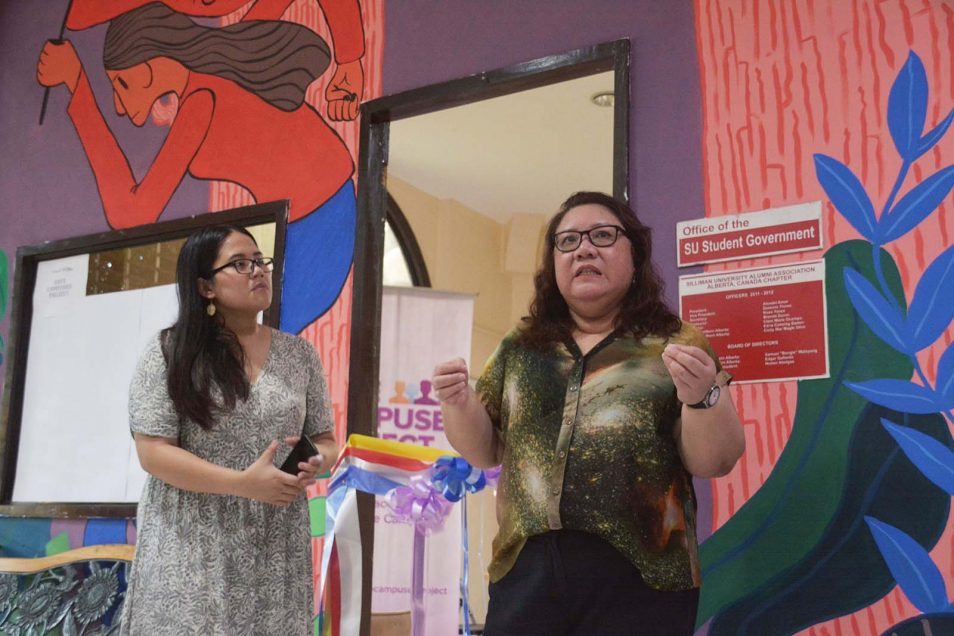
Tiffany Urrutia (right), Canada Fund for Local Initiatives coordinator, delivers a solidarity message.
Tiffany Urrutia, CFLI coordinator, said SU’s Safe Space Desk would “not be possible” without active citizenship.
“[A person] may not want to report [concerns or incidents], it’s okay; but [having] no judgement and listening to the person’s story is important enough,” said Urrutia.
To help implement the Safe Campuses Project in schools, CFLI and ACF conducts training and consultations with students, faculty, and staff.
ACF is a non-government organization (NGO) based in Quezon City that aims to promote active participation of citizens in community activities, focusing mainly on assisting marginalized communities and sectors.
Meanwhile, the CFLI under the Embassy of Canada in the Philippines provides funding assistance to non-government organizations (NGOs) for projects addressing social issues.
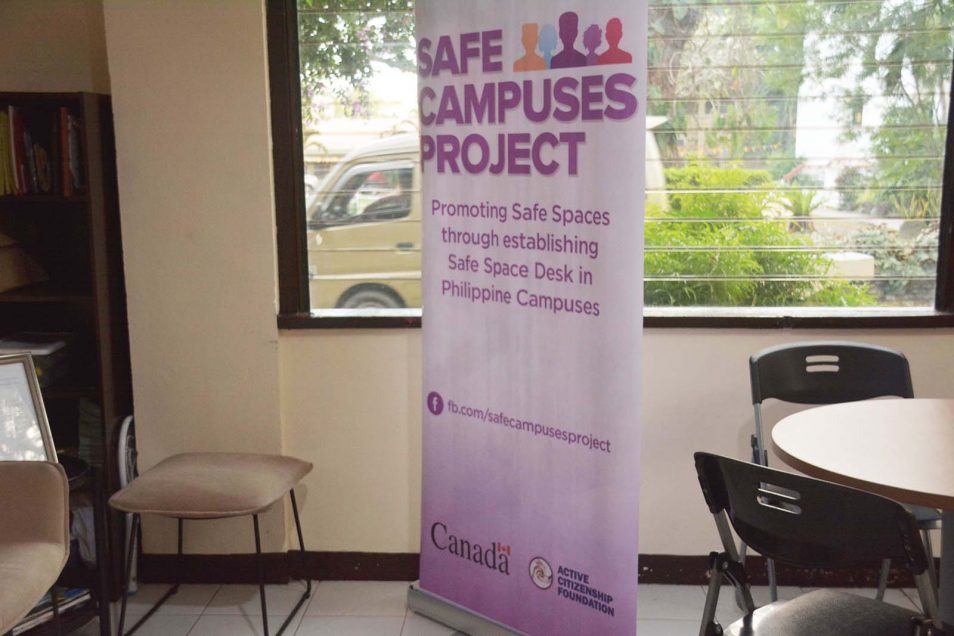
Inside the SU Student Government office where the Safe Space Desk is located


